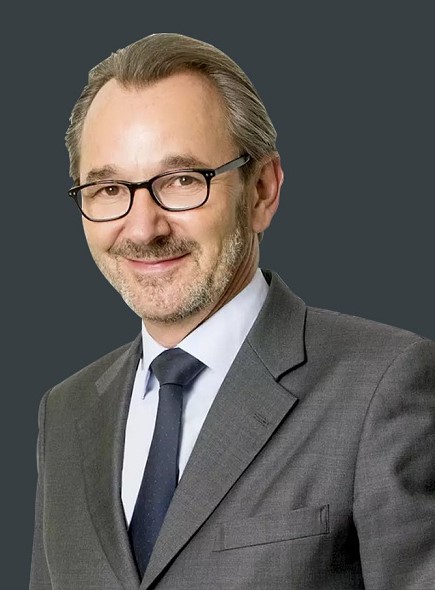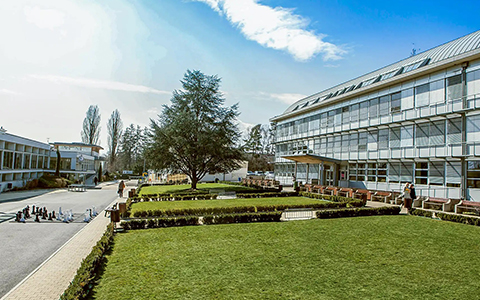 美股中概股面临退市威胁
美股中概股面临退市威胁
美股中概股面临退市威胁 导语: 由于披露不透明,包括腾讯、京东、百度、爱奇艺、B站、网易、360,以及中铝、中国人寿、东航、南航等在内的诸多中国公司,目前纷纷进入美国证券交易委员会(SEC)的预摘牌名单,面临退市。 美国和中国之间日益加剧的紧张局势正在增加在纽约上市的中国股票可能被迫退出纽约交易所的可能性。虽然从美国主要交易所退市并不一定意味着投资者不能进行交易,但退市会带来更大的隐形投入——比如所面临的政治风险。 退市意味着在纳斯达克(Nasdaq)或纽约证券交易所(New York Stock Exchange, NYSE)等交易所交易的中国公司将失去与广大买家、卖家以及中介机构的联系。这些不同的市场参与者有助于创造所谓的流动性,这反过来又使投资者能够迅速将其持有的资产转化为现金。 一旦股票退市,尽管该公司的股票仍可以通过被称为“场外交易”的过程继续交易。但这也意味着该股票已经不在主要金融机构的交易系统之内。且其流动性大为劣化,卖家在不赔钱的情况下,快速找到买家的可能性也大幅下降。 相关法案及背景 根据2002年通过的《萨班斯 - 奥克斯利法案》(Sarbanes-Oxley Act, SOX),如果一家企业想在美国公开市场发行证券,对该企业进行审计的公司必须接受“美国公众公司会计监督委员会”(Public Company Accounting Oversight Board, PCAOB)的检查。该委员会成立于2002年,旨在监督在美国上市公司的审计。有50多个美国以外的司法管辖区与PCAOB合作并允许其检查,但中国和香港特区并不在这些合作的司法管辖区之中,并且拒绝将在美上市的中国企业的审计底稿交由PCAOB审查。 因此,在“瑞信事件”之后,《外国公司担责法案》(Holding Foreign Company Accountable Act, HFCAA)被通过并于2020年生效。 该法案要求在美国的证券发行人证明他们不为外国政府所有或控制。此外,如董事会连续三年无法对发行人的会计师事务所进行检查,则发行人的证券将被禁止在全国性交易所或通过其他方式进行交易。 2021年,美国证券交易委员会通过了修正案,最终确定了实施《外国公司担责法案》(HFCAA)的规则。该法案允许美国证券交易委员会禁止公司股票的交易,如果PCAOB连续三年无法审计其所要求的报告,则会被从交易所退市。 在美中关系日益紧张的情况下,从美国前总统唐纳德·特朗普开始,就采取措施取消美国对中国公司的投资,特别是那些被认为与中国军方有联系的公司。其结果,是中国移动、中国联通和中国电信这三家中国电信公司被迫从纽约证券交易所退市。 如果股票从纽约退市,投资者可以将在美国上市的股票换成在香港上市的股票。在过去几年中,阿里巴巴、百度和京东等许多在美国上市的中国大公司都在香港完成了二次股票发行。但摩根士丹利(Morgan Stanley)的分析师指出,并非所有在美国上市的中国公司都有资格在香港二次上市。 最新动态 5月4日,腾讯旗下游戏公司虎牙和斗鱼、互联网数据中心服务提供商Vnet Group和网易等80多家企业被加入了一份临时名单。这份由美国证券交易委员会(SEC)发布了的中国股票名单,包含128家在美国上市的中国企业,其中不乏前面所提及的知名大型企业,这些企业的股票可能因《外国公司担责法案》(Holding Foreign Company Accountable Act, HFCAA)的关系而在美国面临退市。 京东在一份媒体声明中表示,它正在“积极探索可能的解决方案”,“公司将继续遵守中国和美国的适用法律和法规,并努力保持其在纳斯达克和香港证券交易所的上市地位。” 香港联交所已经引起了名单上其他集团的注意。腾讯支持的房地产代理机构KE Holdings刚刚获得批准,将其股票上市,并将于5月11日开始交易。 同时中国企业也积极探寻登陆其他资本市场,例如瑞士证券交易所,通过首次公开上市(IPO)或者二次上市(发行GDR)的形式,进行融资与交易。 根据最新消息,中国监管机构已指示一些在美国上市的中国公司为更多的审计披露做准备,并正在考虑一项允许美国同行审计不敏感的中国公司的提案。但分析人士认为,中国政府的适度让步或只是权宜之计,美国监管机构亦将步步紧逼。上述消息能否推动两国之间长期的审计僵局向乐观的方向转变,仍然具有非常大的不确定性。 附:美国证券交易委员会(SEC)5月4日更新后的预摘牌中概股名单(以字母顺序排列): 111, Inc. (NASDAQ:YI) 17 Education & Technology Group Inc. (NASDAQ:YQ) 360 DigiTech, Inc. (NASDAQ:QFIN) 36Kr Holdings (NASDAQ:KRKR) ACM Research, Inc. (NASDAQ:ACMR) Adagene Inc. (NASDAQ:ADAG) Agora, Inc. (NASDAQ:API) Aluminum Corporation of China Limited (OTCMKTS:ALMMF) AMTD IDEA Group (NYSE:AMTD) ATA Creativity Global (NASDAQ:AACG) ATRenew Inc. (NYSE:RERE) Aurora Mobile Limited (NASDAQ:JG) Autohome (NYSE:ATHM) Baidu, Inc. (NASDAQ:BIDU) Baozun Inc. (NASDAQ:BZUN) BeiGene, Ltd. (NASDAQ:BGNE) BEST Inc. (NYSE:BEST) BeyondSpring (NASDAQ:BYSI) Bilibili (NASDAQ:BILI) BlueCity Holdings Limited (NASDAQ:BLCT) Burning Rock Biotech Limited (NASDAQ:BNR) Canaan Inc. (NASDAQ:CAN) Canadian Solar Inc. (NASDAQ:CSIQ) Cango Inc. (NYSE:CANG) CASI Pharmaceuticals, Inc. (NASDAQ:CASI) CBAK Energy Technology (NASDAQ:CBAT) China Automotive Systems, Inc. (NASDAQ:CAAS) China Eastern Airlines Corporation Limited (NYSE:CEA) China Foods Holdings Limited (OTCMKTS:CFOO) China Life Insurance Company Limited (NYSE:LFC) China Mobile Limited (BMV:CHLN) China Petroleum & Chemical Corporation (NYSE:SNP) China Southern Airlines Company Limited (NYSE:ZNH) Chindata Group Holdings Limited (NASDAQ:CD) CNFinance Holdings Limited (NYSE:CNF) Concord Medical Services Holdings Limited (NYSE:CCM) Connect Biopharma Holdings Limited (NASDAQ:CNTB) CooTek (Cayman) Inc. (NYSE:CTK) Dada Nexus Limited (NASDAQ:DADA) Daqo New Energy Corp. (NYSE:DQ) DouYu International Holdings Limited (NASDAQ:DOYU) EHang Holdings Limited (NASDAQ:EH) Entrepreneur Universe Bright Group (OTCMKTS:EUBG) Fangdd Network Group Ltd. (NASDAQ:DUO) Fanhua Inc. (NASDAQ:FANH) FinVolution Group (NYSE:FINV) Full Truck Alliance (NYSE:YMM) Futu Holdings Limited (NASDAQ:FUTU) Fuwei Films (Holdings) Co., Ltd. (NASDAQ:FFHL) Gaotu Techedu (NYSE:GOTU) GDS Holdings Limited (NASDAQ:GDS) Genetron Holdings Limited (NASDAQ:GTH) Gracell Biotechnologies Inc. (NASDAQ:GRCL) Green Vision Biotechnology Corp. (OTCMKTS:GVBT) Guangshen Railway Company Limited (OTCMKTS:GNGYF) Hello Group Inc. (NASDAQ:MOMO) Huaneng Power International, Inc. (NYSE:HNP) Huazhu Group Limited (NASDAQ:HTHT) Hudson Capital Inc. (NASDAQ:HUSN) Huize Holding Limited (NASDAQ:HUIZ) HUTCHMED (China) Limited (NASDAQ:HCM) HUYA Inc. (NYSE:HUYA) iHuman Inc. (NYSE:IH) I-Mab (NASDAQ:IMAB) iQIYI, Inc. (NASDAQ:IQ) JD.com, Inc. (NASDAQ:JD) Jianpu Technology Inc. (NYSE:JT) JinkoSolar Holding Co., Ltd. (NYSE:JKS) JOYY Inc. (NASDAQ:YY) JRSIS Health Care Corporation (OTCMKTS:JRSS) KANZHUN LIMITED (NASDAQ:BZ) KE Holdings (NYSE:BEKE) LAIX Inc. (OTCMKTS:LAIXY) Legend Biotech Corporation (NASDAQ:LEGN) LexinFintech Holdings Ltd. (NASDAQ:LX) Li Auto Inc. (NASDAQ:LI) Lizhi Inc. (NASDAQ:LIZI) Logiq, Inc. (OTCMKTS:LGIQ) LOVARRA (OTCMKTS:LOVA) Luckin Coffee (OTCMKTS:LKNCY) Melco Resorts & Entertainment Limited (NASDAQ:MLCO) Microvast Holdings, Inc. (NASDAQ:MVST) NetEase, Inc. (NASDAQ:NTES) NIO Inc. (NYSE:NIO) Niu Technologies (NASDAQ:NIU) Noah Holdings Limited (NYSE:NOAH) Nocera, Inc. (OTCMKTS:NCRA) Nova Lifestyle (NASDAQ:NVFY) OneConnect Financial Technology Co., Ltd. (NYSE:OCFT) PetroChina Company Limited (NYSE:PTR) Phoenix New Media Limited (NYSE:FENG) Pinduoduo (NASDAQ:PDD) Qudian Inc. (NYSE:QD) ReneSola Ltd (NYSE:SOL) RLX Technology Inc. (NYSE:RLX) Scientific Energy (OTCMKTS:SCGY) Sinopec Shanghai Petrochemical Company Limited (NYSE:SHI) Sinovac Biotech Ltd. (NASDAQ:SVA) Smart Share Global Limited (NASDAQ:EM) Sohu.com Limited (NASDAQ:SOHU) Studio City International Holdings Limited (NYSE:MSC) Sunlands Technology Group (NYSE:STG) Tencent Music Entertainment Group (NYSE:TME) Trip.com Group Limited (NASDAQ:TCOM) Tuniu Corporation (NASDAQ:TOUR) Tuya Inc. (NYSE:TUYA) UCLOUDLINK GROUP INC. (NASDAQ:UCL) UP Fintech Holding Limited (NASDAQ:TIGR) UTStarcom Holdings Corp. (NASDAQ:UTSI) Value Exchange International (OTCMKTS:VEII) Viomi Technology Co., Ltd (NASDAQ:VIOT) Vipshop Holdings Limited (NYSE:VIPS) VNET Group, Inc. (NASDAQ:VNET) Waterdrop Inc. (NYSE:WDH) Weibo Corporation (NASDAQ:WB) X Financial (NYSE:XYF) XPeng Inc. (NYSE:XPEV) Xunlei Limited (NASDAQ:XNET) Yalla Group Limited (NYSE:YALA) Yatsen Holding Limited (NYSE:YSG) Youdao, Inc. (NYSE:DAO) Yum China Holdings, Inc. (NYSE:YUMC) Yunji Inc. (NASDAQ:YJ) Zai Lab Limited (NASDAQ:ZLAB) Zepp Health Corporation (NYSE:ZEPP) Zhihu (NYSE:ZH) ZTO Express (Cayman) Inc. (NYSE:ZTO) ZW Data Action Technologies Inc. (NASDAQ:CNET) 本文转载自雷梭勒家族办公室,如有侵权,敬请告知删除。 Sooswiss为您提供 瑞士方向私人管家式的定制服务: 1)家族传承 2)财富管理 3)瑞士投资 4)居留计划 5)税务优化 6)家族治理 更多资讯请登录网站 www.sooswiss.com
 雷梭勒顾问委员会成员:瑞士医疗网络集团主席Raymond LORETAN
雷梭勒顾问委员会成员:瑞士医疗网络集团主席Raymond LORETAN
雷梭勒顾问委员会成员|瑞士医疗网络集团主席Raymond LORETAN 导语: Raymond Loretan先生是一位瑞士公民,拥有弗里堡大学(瑞士)的法律学位和斯特拉斯堡大学(瑞士)的欧洲文凭。毕业后,Raymond Loretan进入了瑞士外交部,以多种外交身份工作了20余年。在此期间,他曾担任瑞士驻新加坡及文莱大使,以及瑞士纽约大使衔总领事,代表着瑞士的利益。之后,他从外交领域转向了瑞士的政治与经济领域。如今,他已是27家瑞士公司和基金会的董事会成员,业务涉及健康、工业、酒店、媒体及文化等多种领域。 图片来源:lasoleillefamilyoffice.com 职业生涯 离开瑞士外交部后,Raymond Loretan又于2012至2015年间担任SRG瑞士广播电视公司主席,并于2017至2021年担任了瑞士知名医院主。 他是日内瓦FBL associés咨询公司的创始成员之一,也是SSE控股公司(Société Suisse des Explosifs SA)董事会主席,同时还担任其他董事会职务。如今,Raymond Loretan担任日内瓦高级钟表大赏基金会、Visions du Réel基金会以及日内瓦外交俱乐部主席。 2007年,他加入了上市集团Aevis Victoria(一家2006年成立的瑞士投资公司),担任董事会副主席以及战略与投资委员会成员。自2006年起,他担任瑞士医疗网络集团执行主席,该公司是Aevis Victoria的主要子公司,也是瑞士第二大私立医疗集团。 Raymond Loretan投身多元行业,有着丰富的外交经验以及全球化网络系统,是雷梭勒家族办公室可靠的后备力量。我们非常荣幸地欢迎Loretan先生加入雷梭勒顾问委员会! Original English Text Advisory Board – Raymond LORETAN Introduction Mr.Raymond Loretan is a Swiss citizen and holds a law degree from the
University of Fribourg (Switzerland) and a diploma in European
Organization from the University of Strasbourg (Switzerland). After
graduation, Raymond Loretan joined the diplomatic service working for
the Swiss Foreign Ministry in various diplomatic capacities for over 20
years. Among other things, he represented Switzerlands interests as
Ambassador to Singapore and Brunei, and as Switzerland’s Consul General
in New York. He then moved from diplomacy to politics and the Swiss
economy. Today he is a member of the board of directors of 27 different
Swiss companies and foundations active in the fields of health,
industry, hospitality, media, and culture. Careers Afterleaving the Swiss diplomatic service, he also became Chairman of SRG
Swiss Radio and Television Company from 2012 to 2015 and President of
Swiss Leading Hospitals from 2017 to 2021. Heis a founding member of the consulting firm FBL associés in Geneva, andChairman of the Board of Directors of SSE Holding SA (Société Suisse
des Explosifs SA) among other board appointments. Today, Raymond Loretanis President of the Fondation du Grand Prix dHorlogerie de Genève, theFondation Visions du Réel and the Diplomatic Club of Geneva. In2007, he joined Aevis Victoria SA (a Swiss investment company founded
in 2006) as Vice Chairman of the Board of Directors and a member of the
Strategy and Investment Committee. Since 2006, he is Executive Chairmanof Swiss Medical Network SA, the main subsidiary of Aevis Victoria SA,
and the second-largest private hospital group in Switzerland. RaymondLoretans economic involvement in very diversified fields, his
experience as a Swiss diplomat, as well as his global network is the
perfect complement to La Soleille Family Offices plans. We are
therefore honored to have Mr. Loretan join the La Soleille Advisory
Board! 本文转载自雷梭勒家族办公室,如有侵权,敬请告知删除。 Sooswiss为您提供 瑞士方向私人管家式的定制服务: 1)家族传承 2)财富管理 3)瑞士投资 4)居留计划 5)税务优化 6)家族治理 更多资讯请登录网站 www.sooswiss.com

 美股中概股面临退市威胁
美股中概股面临退市威胁
 暑期给所有孩子们的Offer(六)丨2023瑞晶夏令营
暑期给所有孩子们的Offer(六)丨2023瑞晶夏令营
 雷梭勒“瑞士名校线上见面会”回顾:瑞士莱蒙国际学校
雷梭勒“瑞士名校线上见面会”回顾:瑞士莱蒙国际学校
 雷梭勒顾问委员会成员:瑞士医疗网络集团主席Raymond LORETAN
雷梭勒顾问委员会成员:瑞士医疗网络集团主席Raymond LORETAN